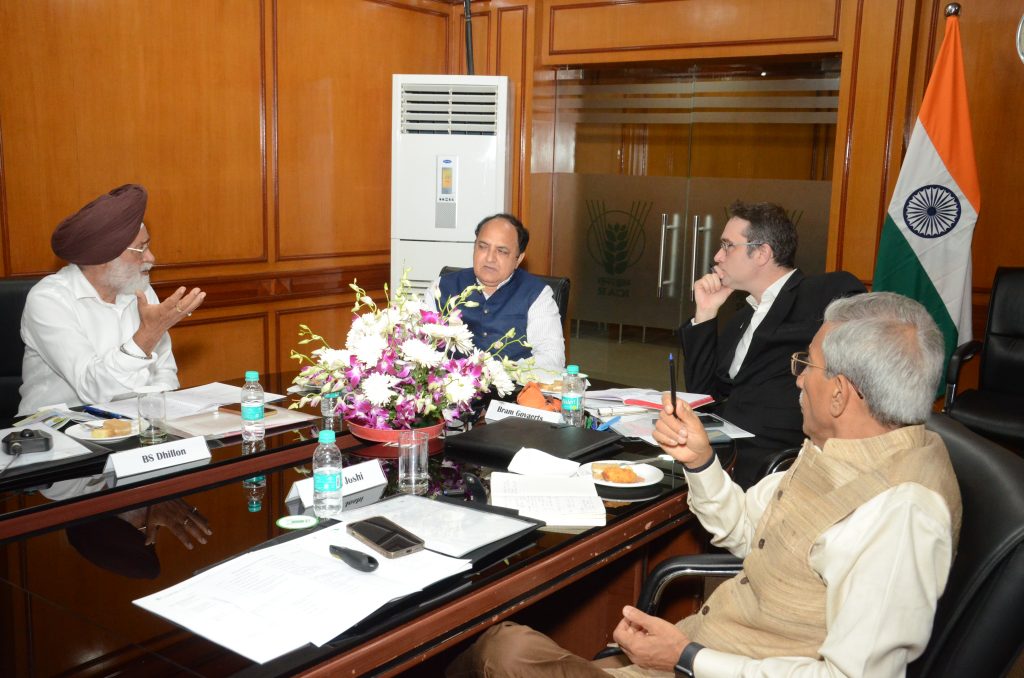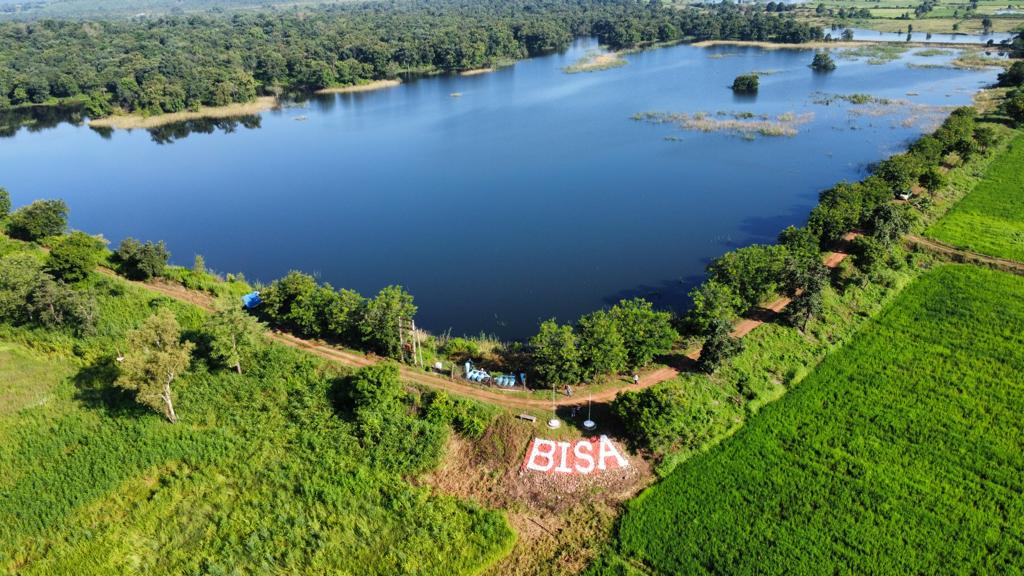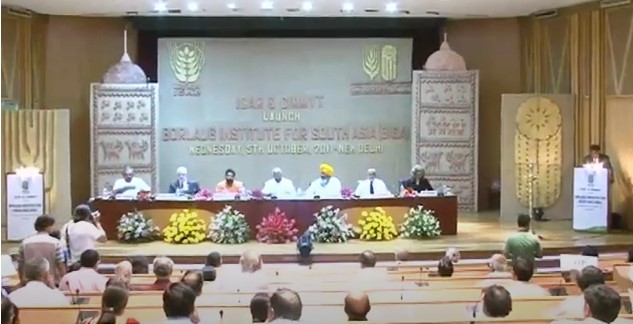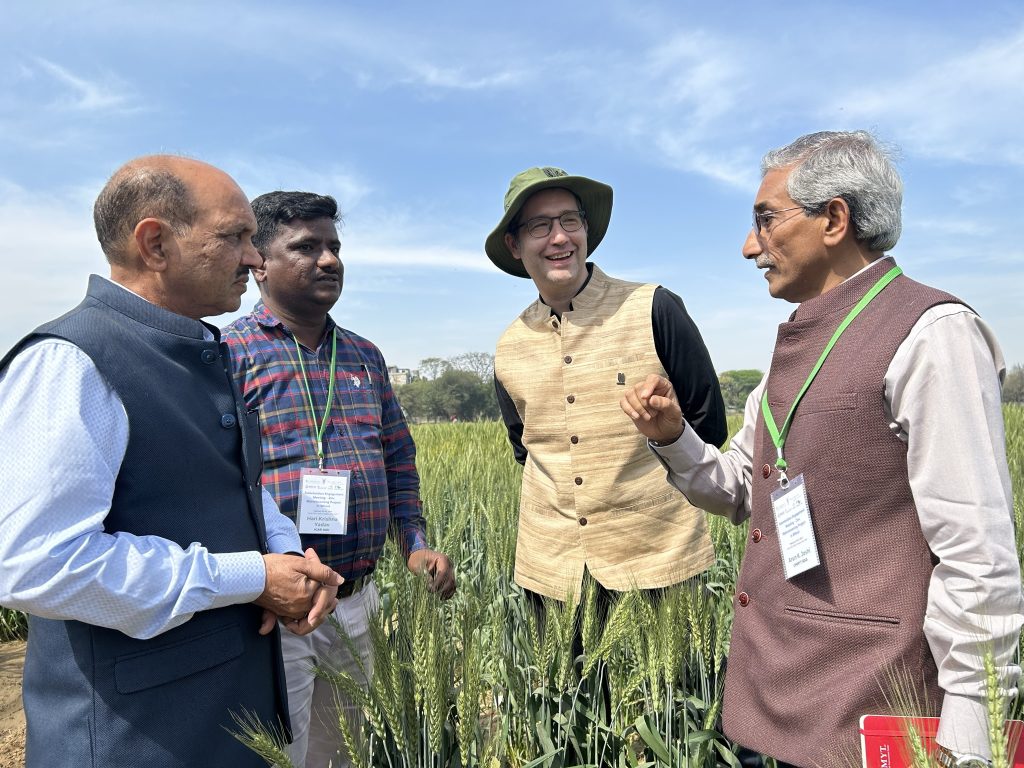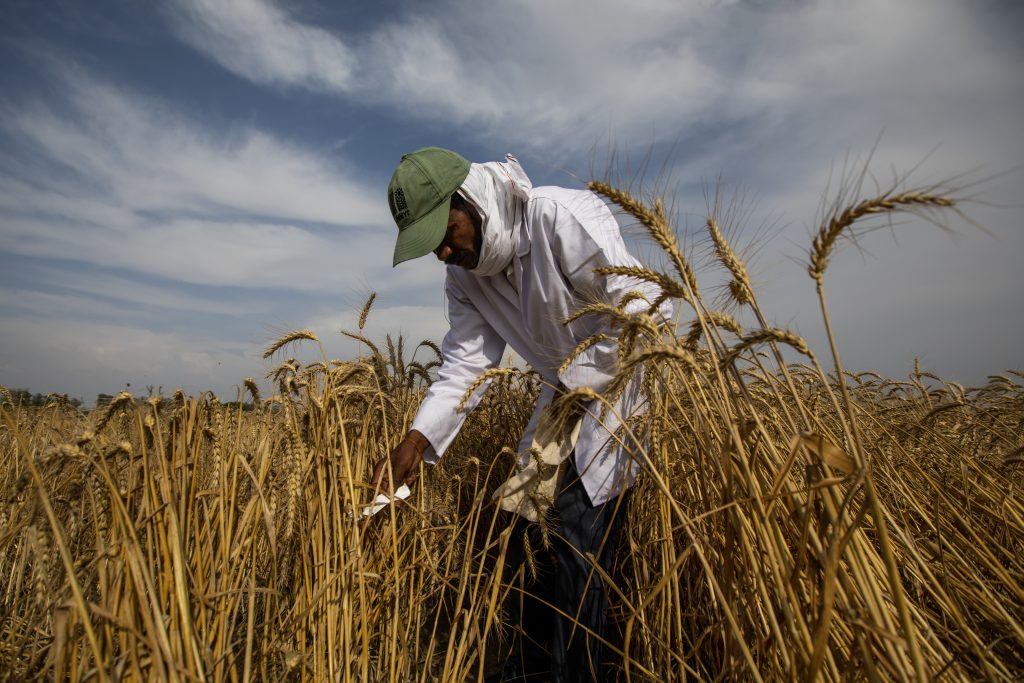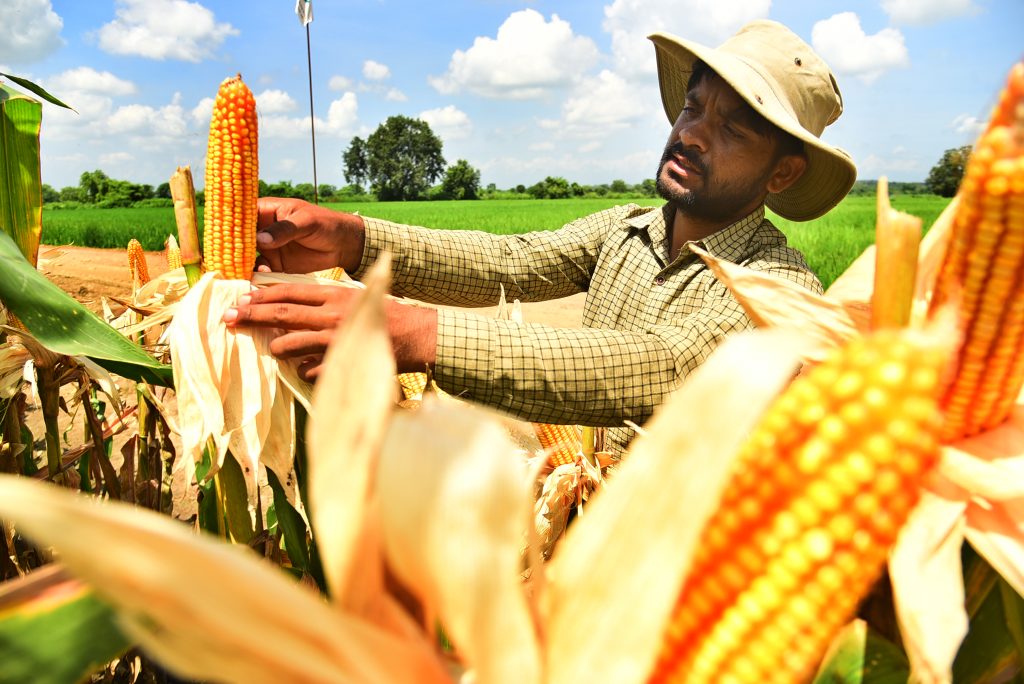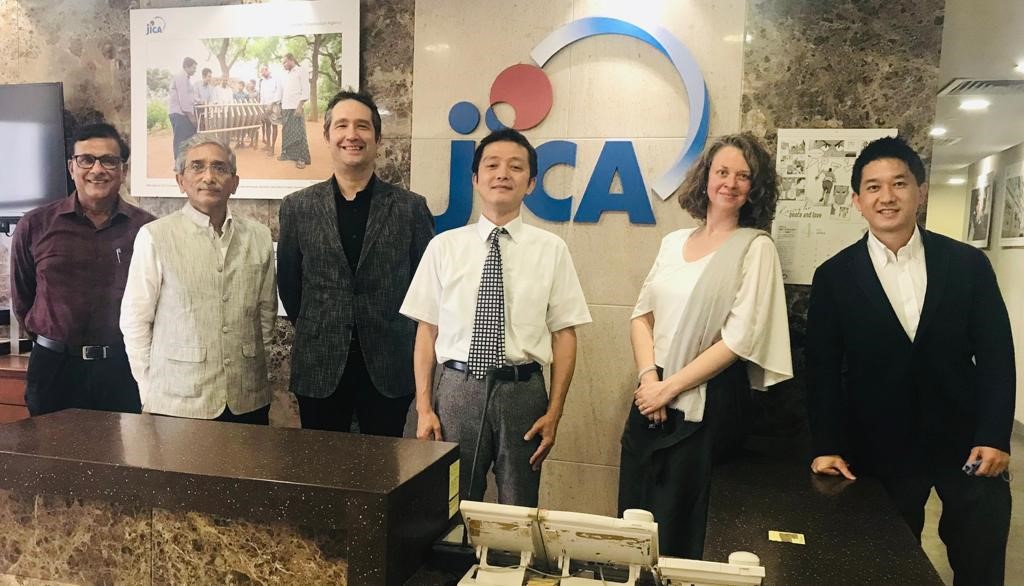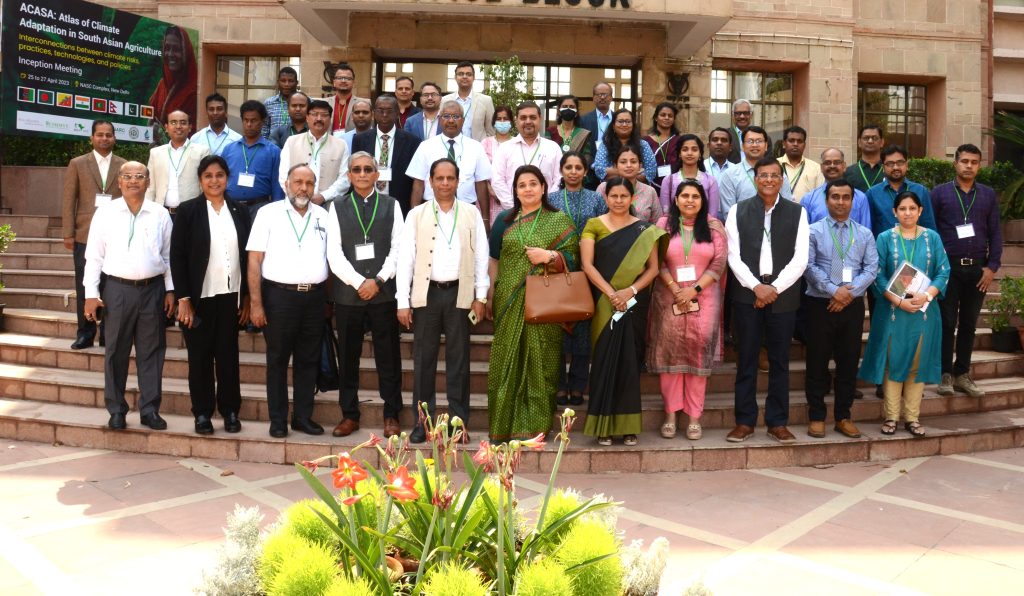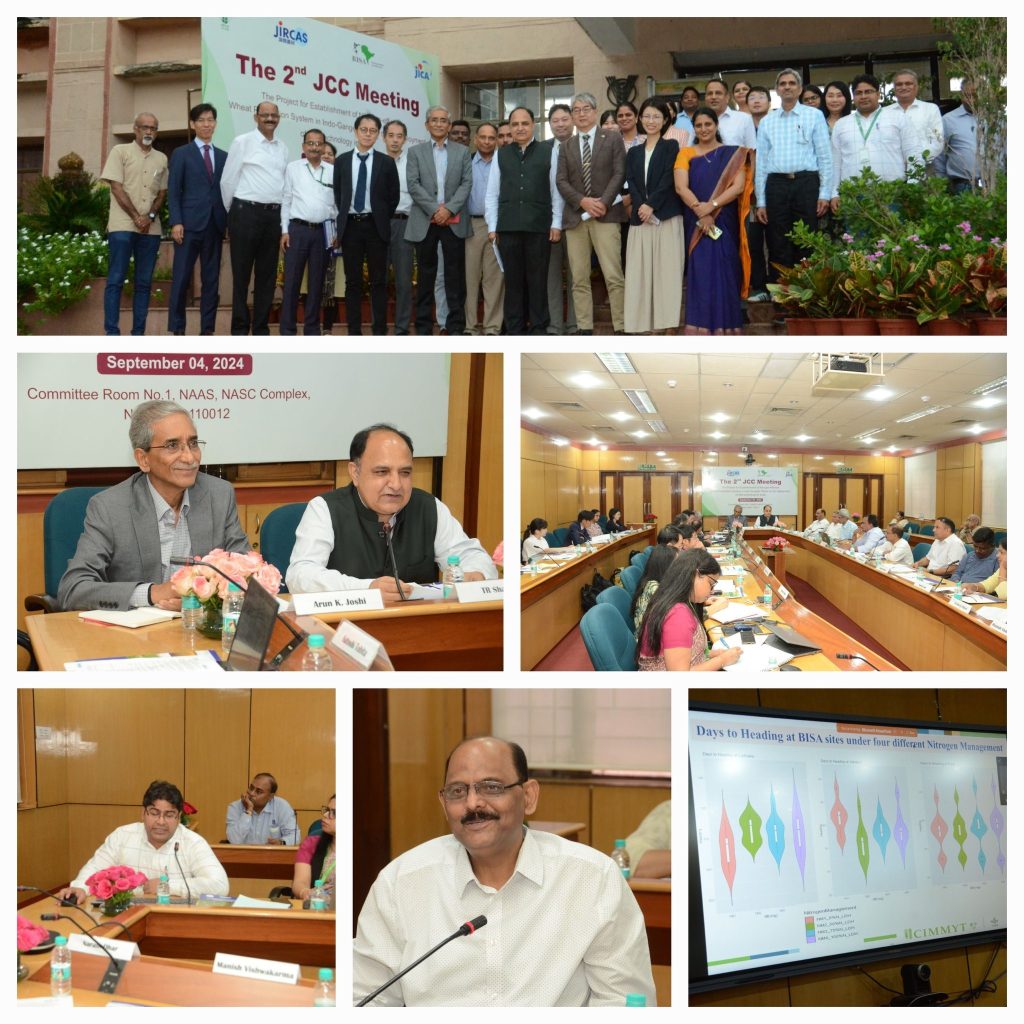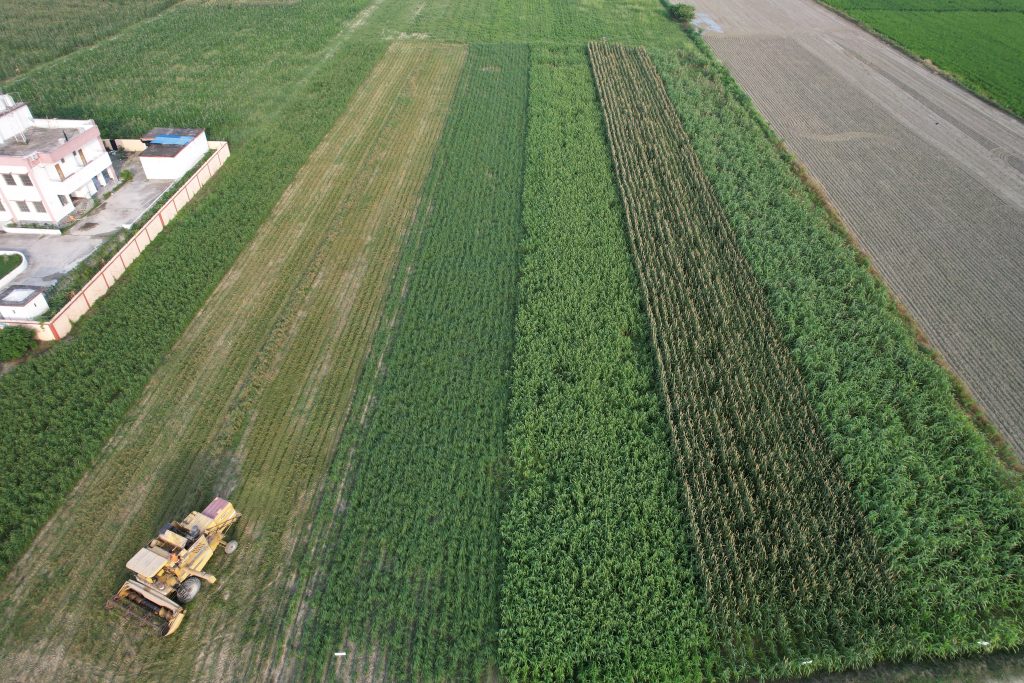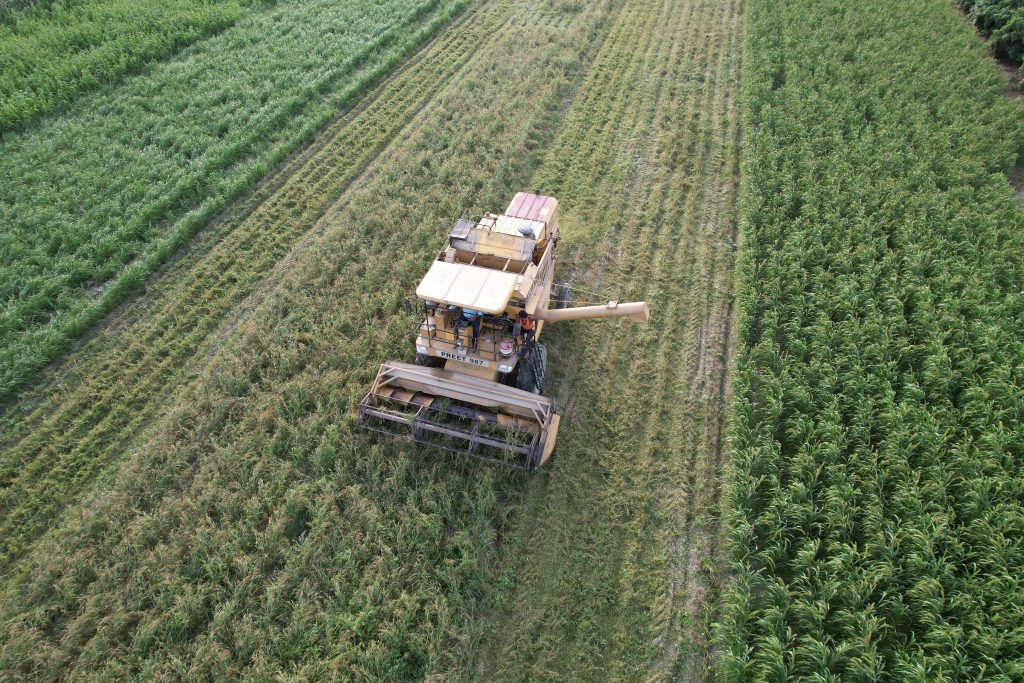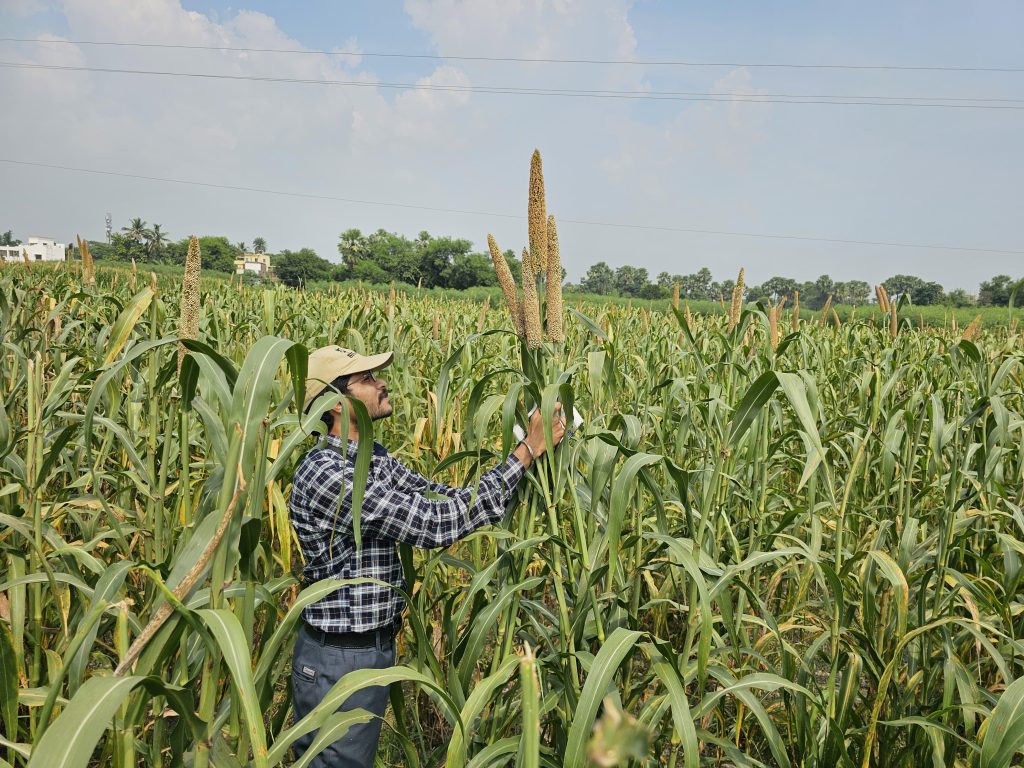A Path Forward: The Director General’s Strategic Visit to India
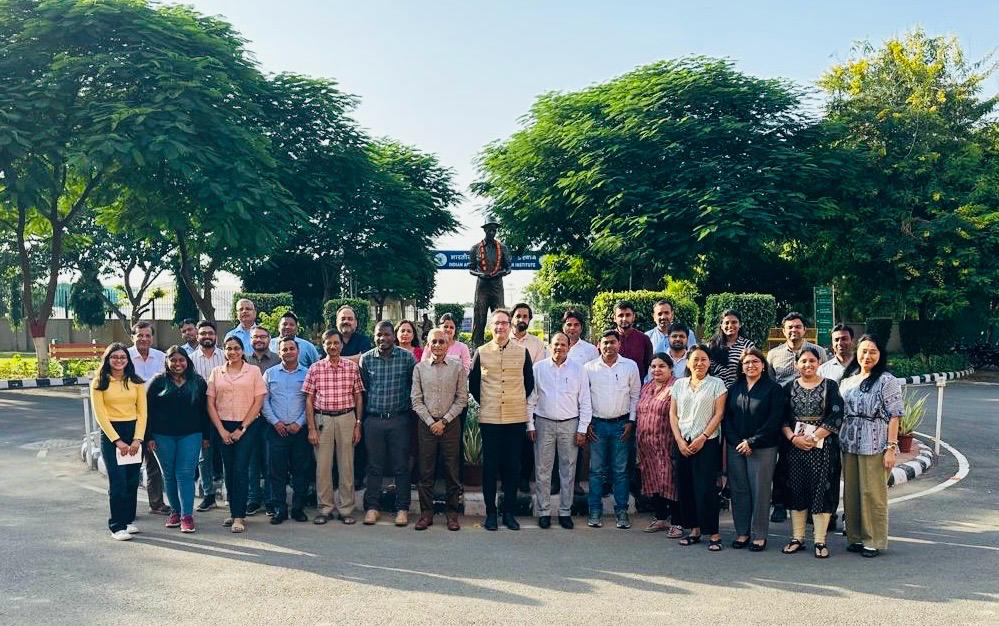
The recent visit of Dr. Bram Govaerts, Director-General, CIMMYT-BISA, to India marked a significant moment in international relations. This visit highlighted the importance of collaboration and mutual growth and showcased the deepening ties between CIMMYT and Indian collaborators, especially ICAR, opening avenues for future partnerships.
Key Highlights of the Visit
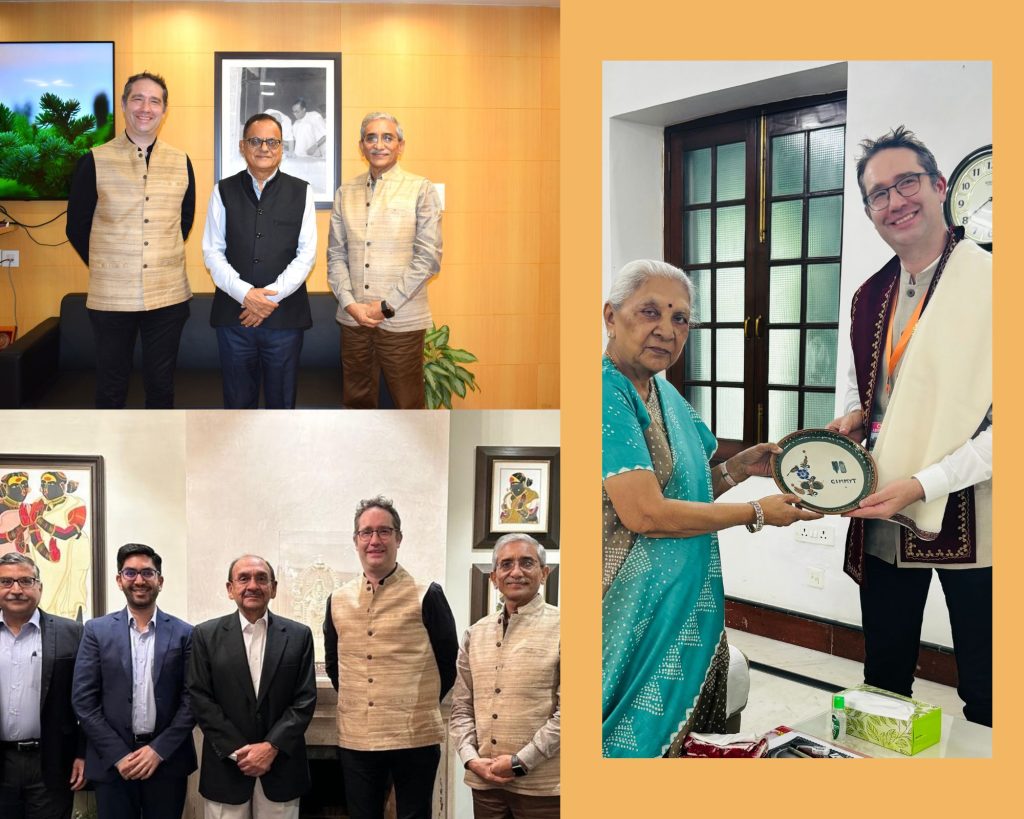
Bilateral Meetings – The Director General engaged in fruitful discussions with key Indian officials. During an event at the CSA University in Kanpur, Govaerts had an opportunity to greet and meet the honourable Governor of Uttar Pradesh, Smt. Anandiben Patel. He presented her with a CIMMYT souvenir and discussed the various aspects of agricultural research in India, highlighting the CIMMYT-BISA partnership with the Government of India and the Indian Council of Agricultural Research (ICAR). He also had a constructive dialogue with Prof. Ajay Kumar Sood, the Principal Advisor to the Government of India and now a Board of Trustees Member of CIMMYT. The discussions centred around CIMMYT’s ongoing agricultural initiatives in India and South Asia, focusing on exploring future collaboration opportunities in agricultural research and innovation. These meetings highlighted shared goals and paved the way for collaborative projects. During his visit, Dr. Goaverts also had a chance to do a courtesy meeting with Prof. Ramesh Chand, Member, NITI Aayog. In the end, he had an opportunity to meet Ajay S. Shriram, Chairman and Senior Managing Director, of DCM Shriram Ltd. Dr. Govaerts acknowledged their commitment to the Rajaram-DCM Shriram Scholarship which was launched during the Dialogue NEXT conference in Mexico in July 2024. This scholarship is aimed at fostering the next generation of agricultural scientists while honouring Dr. Rajaram’s legacy.
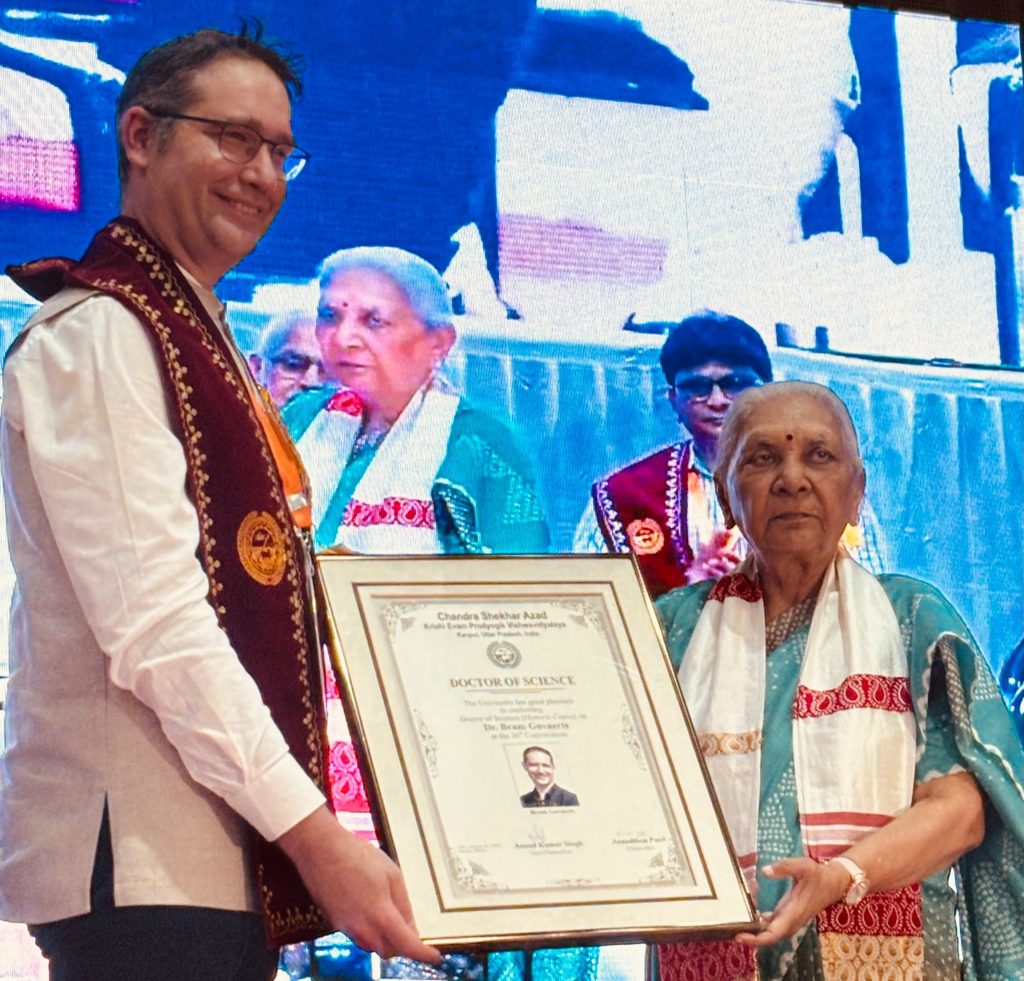
Honoris Causa – Dr. Govaerts attended the 26th convocation of CSA University in Kanpur. The Honourable Governor of Uttar Pradesh, Smt. Anandiben Patel conferred the Honoris Causa on Dr. Bram Govaerts during the convocation ceremony. She highlighted various initiatives undertaken by the government to uplift farmers and recognized CIMMYT’s efforts in the agriculture sector.
Regional Staff Meeting – To strengthen internal communication and collaboration, the Director General held a significant meeting with CIMMYT-BISA, India staff members. This gathering aimed to discuss the organization’s vision, address concerns, and inspire a unified approach to upcoming challenges. He outlined a clear vision for the organization’s goals, emphasizing the importance of innovation, inclusivity, and sustainability. Encouraging an open exchange of ideas, the meeting featured a Q&A session where staff could voice their thoughts and questions. This transparency fostered a sense of trust and camaraderie, making employees feel valued and heard. The meeting also provided a platform to discuss challenges faced by staff in their daily operations. The Director General listened attentively to concerns, offering insights and potential solutions to help overcome obstacles.
Executive Committee Meeting of BISA – Dr. Govaerts Chaired the Executive Committee meeting of BISA with Dr. T.R. Sharma (DDG ICAR) as the Co-Chair, and discussed key strategies with the committee members. CIMMYT Board Chair Margaret Bath also attended this meeting. The members reviewed the progress and reaffirmed BISA’s commitment to its vision and mission.
Looking Ahead
The Director General’s visit to India has set the stage for a strengthened partnership that benefits both parties. It demonstrates a commitment to addressing global challenges through collaborative efforts.
As the world continues to navigate complex challenges, the lessons learned, and relationships forged during this visit will be crucial. The collaboration between CIMMYT, Mexico, and India will undoubtedly contribute to more robust solutions and sustainable growth.
The Director General’s visit to India is a testament to the power of diplomacy and the shared vision for a better future. By fostering cooperation, we can work towards solutions that benefit our countries and the globe.
